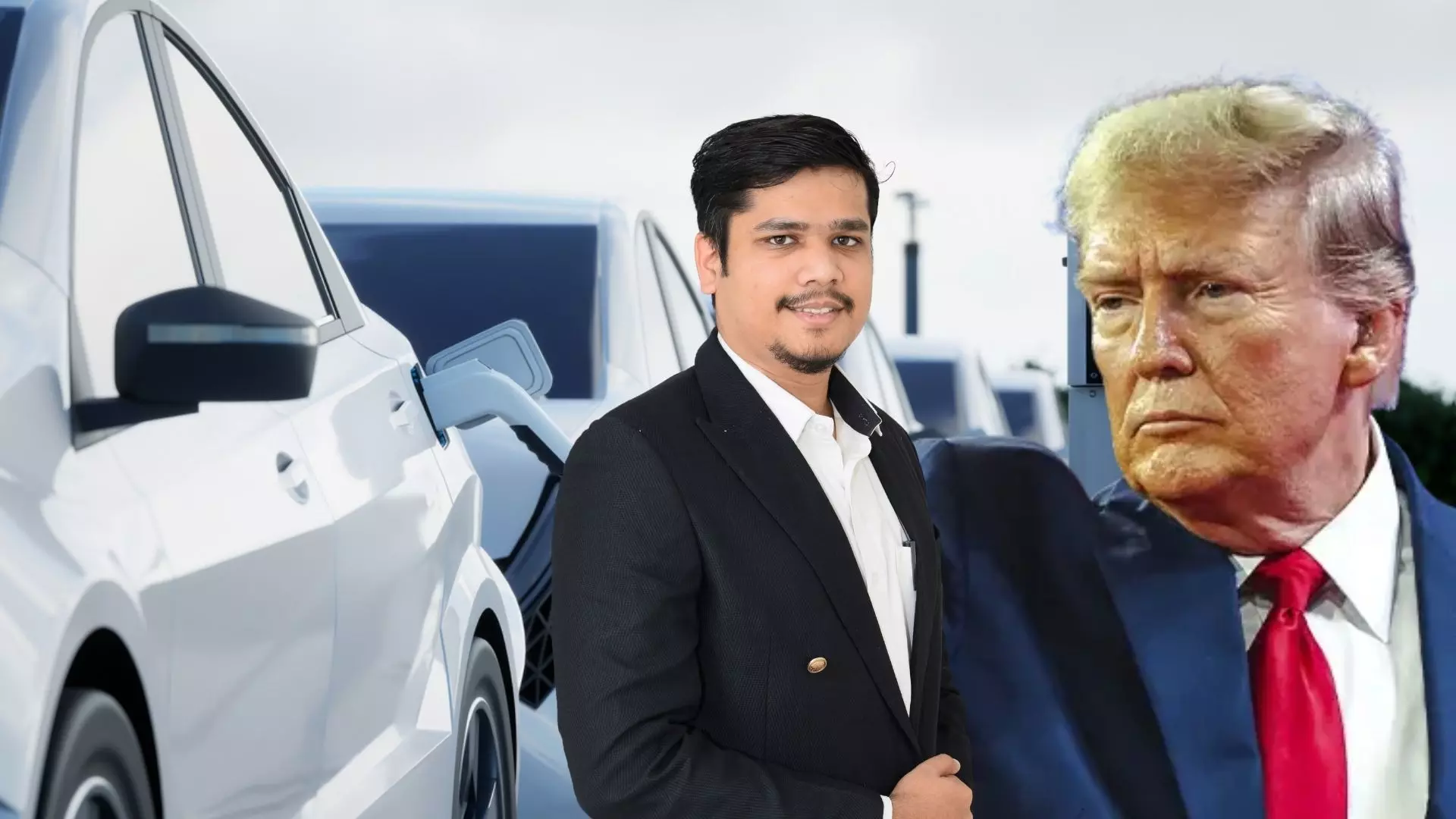
Why EV battery maker Boson is undeterred by Chinese rivals, Trump policies
Guru Punghavan, 24-year-old founder of lithium-ion cell manufacturer Boson, talks about supply chains, sustainability, and India’s future as an EV hub

As US President Donald Trump’s steep new tariffs hit Chinese electric vehicles and batteries, global supply chains are being reshaped. For India, this could be a critical moment to assert itself as a serious player in EV battery manufacturing.
In an interview with The Federal, Guru Punghavan, 24-year-old entrepreneur and founder of Boson, a high-energy density lithium-ion cell manufacturer, talks about supply chains, sustainability, and India’s future as an EV hub.
With Trump’s new tariffs on Chinese EVs and batteries, do you see global supply chains shifting—and could India benefit?
Yes. With the Make in India policy, local production gets a big boost. Just as Chinese manufacturers are scouting for new markets, we in India are positioning ourselves with high-quality products to capture demand. The focus now is to ensure supply with the best standards, which the Indian market expects.
Do you see Chinese manufacturers intensifying their competition in India and Asia? How will you respond?
There is already strong competition from Chinese manufacturers in Asian markets. But our edge lies in performance. Our batteries offer longer life cycles, better milliampere-hour (mAh) capacity, and sustainable solutions. These are factors that set us apart from Chinese products.
Also read | How lofty targets, missteps, failed EV policy spelt doom for Ola, Hero
You’ve claimed Indian batteries outperform Chinese ones. Can you explain how?
Take NMC (nickel manganese cobalt) chemistry. Chinese NMC cells usually deliver only 350 to 400 cycles. Our NMC cells can provide over 1,000 life cycles. On top of that, we can deliver discharge current ratings of 11C to 15C, which Chinese cells don’t match.
Are these batteries multi-sector, usable beyond EVs?
Yes. NMC chemistry has multi-sector applications. Our batteries are suited for EVs, drones, and heavy power tools.
China wants to dominate rare earth supplies, especially from Africa. How do Trump’s trade policies affect your lithium sourcing?
At Boson, we are building independence from raw material dependence through recycling. By focusing on the circular economy, we ensure lithium and other critical minerals are recovered from end-of-life batteries. This helps us stay self-sufficient.
How do you ensure recycling doesn’t compromise quality?
Our recycling process guarantees purity levels of 99.9% for cathode active material (CAM). High-purity materials extracted from old batteries are fed back into production, maintaining both performance and quality.
Watch | VinFast vs Tesla: India's EV market turns into global battleground
Given Trump’s support for fossil fuels, could the global EV momentum slow down?
We don’t believe so. Trump’s policies change often and are time-limited. India is moving forward with its own EV policies, and that is where our focus is.
Do you see the US–China trade war as an opportunity for India to become an EV hub?
Yes. This is the right moment for India to establish itself. Indian products will soon set benchmarks in global markets. Beyond EVs, we’ve also shown success in defence—during Operation Sindoor, Indian drones performed exceptionally well. That should be seen as proof of our capabilities.
You mentioned drones. How does the drone sector fit into your company’s plans?
The drone sector is growing rapidly and provides a huge opportunity. We have decided to focus on drones as our primary market for the coming year. While we are in talks with EV original equipment manufacturers (OEMs), our immediate priority is high-energy density, high-discharge batteries for drones.
So India is still dependent on imports for lithium batteries?
Yes. India has been importing heavily from China and other countries. But with these policy shifts and domestic innovation, I believe this dependence will change soon.
Boson is positioned as India’s first high energy density lithium-ion cell maker. What sets your products apart globally?
We are producing cells in the 4,000 mAh to 6,000 mAh range with high discharge current. Our 21700 cells, for example, offer 5,500 mAh with discharge above 15C—specifications few global manufacturers can match. These cells can serve both industrial and defence requirements.
Any final thoughts on Trump’s policies and India’s future?
My takeaway is that India is becoming self-reliant. Over the next five to ten years, the country will emerge as a global power. Boson will be proud to serve India’s energy needs in that journey.
The content above has been transcribed from video using a fine-tuned AI model. To ensure accuracy, quality, and editorial integrity, we employ a Human-In-The-Loop (HITL) process. While AI assists in creating the initial draft, our experienced editorial team carefully reviews, edits, and refines the content before publication. At The Federal, we combine the efficiency of AI with the expertise of human editors to deliver reliable and insightful journalism.

